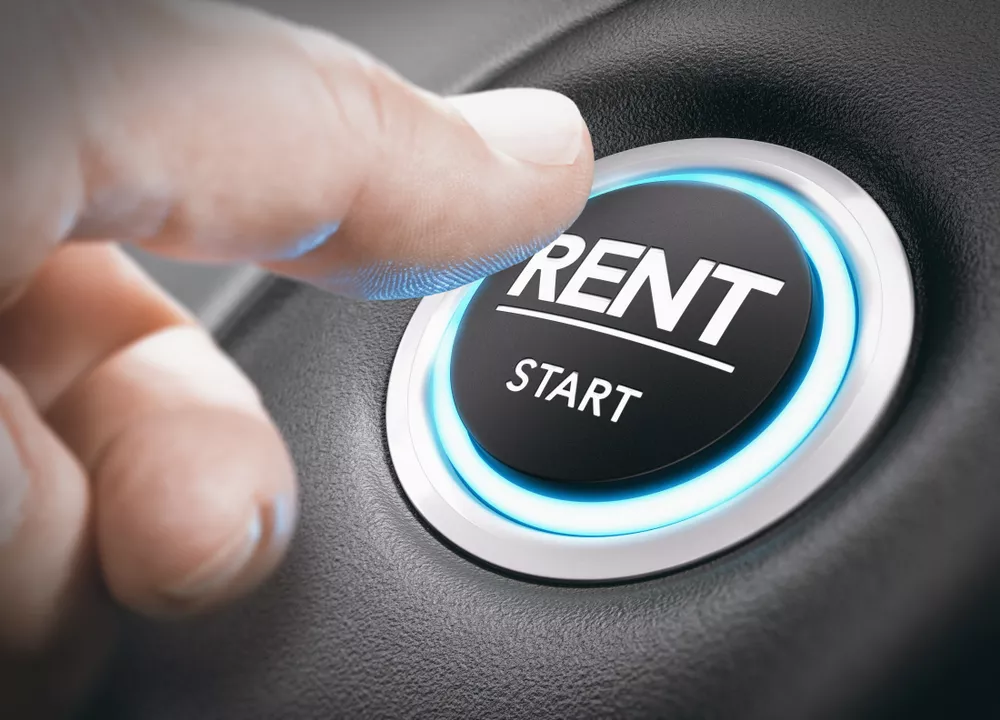
Ultimate Home Maintenance Checklist: 8 Tips For Homeowners
Stay on top of home maintenance with this easy checklist to prevent costly repairs, boost efficiency, and keep
 Written by:
Written by:

Louise is an SEO Writer for Spacer Technology, creating content for the Parkhound, WhereiPark, Spacer.com.au, and Spacer.com brands. Based in the Philippines, she transitioned from her government office job to copywriting in 2012 and has stayed in content production since.
Reading time : 6 mins

More and more people are participating in the sharing economy as a way to earn passive income, but not everyone is mindful of the legal and tax obligations when doing so.
When it comes to renting out your garage as storage or parking space, however, the rules are quite straightforward.
As long as you’re not in violation of any by-laws, you’re legally allowed to rent out your garage.
You’ve got an empty garage and something to save money for but your income isn’t increasing. Then a brilliant idea pops up: why not secure an additional income stream by renting out the extra space to a trustworthy renter? It’s the easiest solution you can think of to maximise an underutilised space while making extra cash at the same time. But stop for a moment before you register to become a host.
Even if the garage is technically yours, can you easily just rent it out to a third party right away?
Not really – it all depends on your ownership status, the existing regulations, and the safety standards that must be met. Read on below to further understand these key considerations.
Ownership status refers to whether you legally and fully own the property, a co-owner exists (joint ownership), or you’re simply a tenant. This is important because the type of ownership will determine your decision-making limitations.
Existing regulations can hinder your plans regardless of ownership status if, for instance, the home owner association (HOA) does not allow non-residents to enter. In this case, your renter options can be severely limited. Another is if, for instance, renting out will only be allowed after securing certain permits and background checks on the space renter.
Local laws may also restrict how a home garage can be rented out depending on the safety and security measures in place. Likewise, some by-laws may restrict the use of a garage space for anything but motor vehicles and accessories.
Just know that the general consensus is that a garage is considered a non-habitable structure, so make sure that your potential tenants won’t live in their vehicle that’s parked in your garage. Likewise, if you have business owners as tenants, find out whether they will really just use your garage as storage space. Your tax filing may become more complicated if they conduct business on your rental property.
If such restrictions are not imposed, however, renting out for storage or parking is acceptable.
You may own the property but there are still standards that must be met before you can rent out your garage for storage or parking.
In general, since a garage is actually meant to house vehicles, you’d have no problem with renting it out for parking purposes to a third party – but it’s a different story for storage.
When it comes to storage, you need to take into consideration the general climate conditions, temperature fluctuations, and health and fire safety standards.
That is, some items may be affected by weather and temperature fluctuations that could lead to damage, growth of harmful mold, or cause a dangerous chemical reaction or fire. You’ll have to ensure that you can address potential dangers that may affect both what is stored in the garage and the neighborhood. Structural safety is also important. For example, cracks in the garage walls or foundation could indicate instability, making the garage unsafe for storage.
Likewise, there is a possibility that stored items are illegal in your state but not in others. Hence, you’ll have to ensure that your garage is up-to-date when it comes to health and safety standards.
Renting out your spare space for additional income is nice, but you need to remember to pay appropriate taxes to avoid getting in trouble. That is, according to the Australian Taxation Office (ATO), any income you earn from renting out all or a portion of your property or home still forms part of your assessable income.
That means you need to ensure that you declare all rent income you receive from renting out your garage and pay the appropriate tax, or else you may get in trouble with the tax bureau. Fortunately, filing tax for garage rent income through the digital platforms is more straightforward than taxation on other property taxes.
According to the ATO, income from peer-to-peer sharing must be declared under “other income” no matter how small the amount is. Make sure to keep your receipts so you can also claim tax deductions for some expenses, such as platform service fees, if any.
Note that this rule only applies to the income you earn for sharing assets excluding accommodation that you rent out through a platform.
You must also declare income and deductions for only the portion of the asset that you own. This means that if you have a joint ownership of the garage with your spouse, you only need to declare 50 per cent of the income and are only allowed to claim 50 per cent of the expenses for tax deductions.
You don’t need to worry about Capital Gains Tax (CGT) unless you sell the property you rented out.
You can legally rent out your garage as part of the sharing economy under Australian laws as long as you meet certain requirements and pay the appropriate taxes.
If you have more questions with regard to taxation, the ATO is more than happy to help you sort them out.
This content is originally published for Spacer AU, a Spacer Technologies company, and is protected under the Copyright Act 1968 (Commonwealth). Unauthorised use or reproduction of this article, in whole or in part, without permission is prohibited and may result in legal action.
Louise is an SEO Writer for Spacer Technology, creating content for the Parkhound, WhereiPark, Spacer.com.au, and Spacer.com brands. Based in the Philippines, she transitioned from her government office job to copywriting in 2012 and has stayed in content production since.
Louise is an SEO Writer for Spacer Technology, creating content for the Parkhound, WhereiPark, Spacer.com.au, and Spacer.com brands. Based in the Philippines, she transitioned from her government office job to copywriting in 2012 and has stayed in content production since.

Stay on top of home maintenance with this easy checklist to prevent costly repairs, boost efficiency, and keep

Being financially independent means having enough income, savings, or investments to live comfortably for the rest of your

From sorting your things to finding ways to reuse and recycle clutter, we’ve got simple and practical tips
This will close in 0 seconds
This will close in 0 seconds